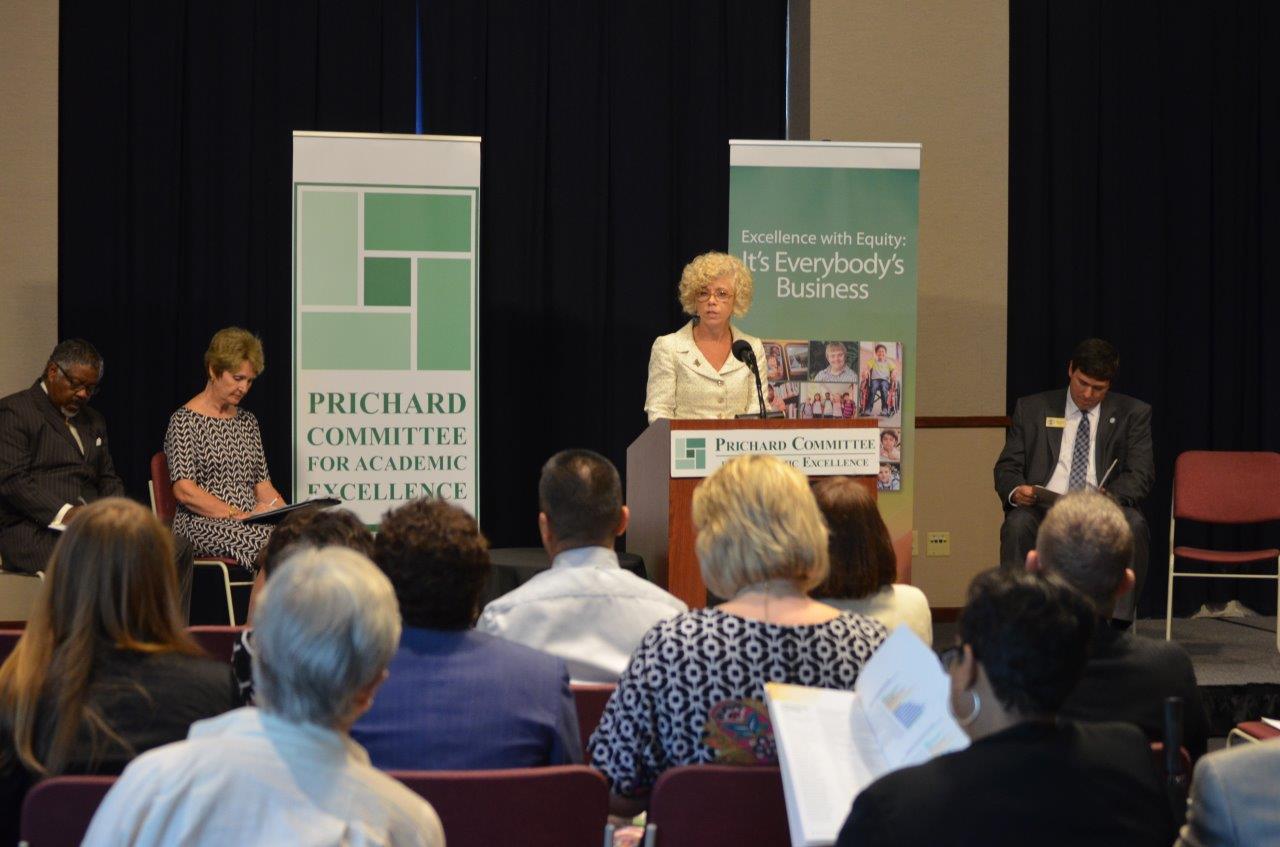
Kentucky has made significant progress in education, but the state is not doing enough to close the academic achievement gaps that persist among different groups of students, according to a new report from the Prichard Committee for Academic Excellence.
Closing those gaps is more critical than ever given the increasing need for education or training after high school to ensure the future success of individual students and the state as a whole, the report points out.
“We must recommit ourselves to the vision that all students have the right to equitable opportunities to learn at high levels. It’s not up to someone else; it’s up to each of us individually and all of us collectively. These are our students, our schools, and they are our future. Our students and our Commonwealth cannot afford for us to wait any longer,” said Helen Mountjoy, co-chair of the Achievement Gap Study Group.
Excellence with Equity: It’s Everybody’s Business followed a detailed review by the committee’s Achievement Gap Study Group of the continuing challenges of moving all students to high academic performance.
C.B. Akins, co-chair of the study group said, “we can close the achievement gap if we are willing to consistently implement strategies that are backed by empirical data. This report rebukes the need for further study of what we should do, and challenges all who are strategically positioned to make a difference by doing what we already know will work.”
“Education equals opportunity,” the report notes. “But far too many Kentucky students are being denied that opportunity as a result of an education system that has failed to erase barriers due to race, income, language, and learning differences.”
Students most likely to face such barriers include those:
· With low family incomes
· Who are learning English
· With learning differences
· Who are African American, Hispanic or Latino, American Indian/Native Alaskan or of two or more races
Nearly 70 percent of Kentucky students fit in one or more of those groups, although many of those students excel, the report notes.
While overall student results have improved over the last decade, the report points out that the achievement gaps have grown. As an example, between 2005 and 2015, Kentucky’s 4th-grade reading proficiency on the National Assessment of Educational Progress increased:
· 8 percent for African American students and 11 percent for white students
· 7 percent for students receiving free or reduced price meals and 18 percent for students not receiving those meals
· 5 percent for students with identified disabilities and 12 percent for students without
All six student groups improved, but closing the gaps would have required faster improvement for those students with the lower rates of growth.
Key findings of the report, which is available at http://bit.ly/2bAemn4, point to the need for early and continuing efforts to achieve excellence with equity in Kentucky schools:
· Gaps are already visible at the start of kindergarten, making early childhood efforts essential.
· Most gaps expand from kindergarten to graduation, confirming that improvement is needed at all grade levels.
· Disciplinary consequences are much harsher for students of some races than for others.
· Identification of students with disabilities and gifted and talented students appears to lack equity.
· Kentucky’s teaching force lacks sufficient racial diversity.
The report calls for bold leadership at the state and community levels; improvements in school climate and culture to support students and families; classroom instruction that engages each student; accountability to ensure improvement in student performance; and a clear focus on sustaining the work.
“We plan to use this valuable report as a platform for an aggressive and consistent effort in the months ahead to galvanize support – among community and business leaders, advocates, policymakers and others – to move with urgency to increase achievement for all students and close academic gaps,” said Brigitte Blom Ramsey, executive director of the Prichard Committee.
“This is not only a matter of critical importance to the lives of students and their families, it is key to ensuring the economic growth and prosperity of Kentucky,” she added.

















